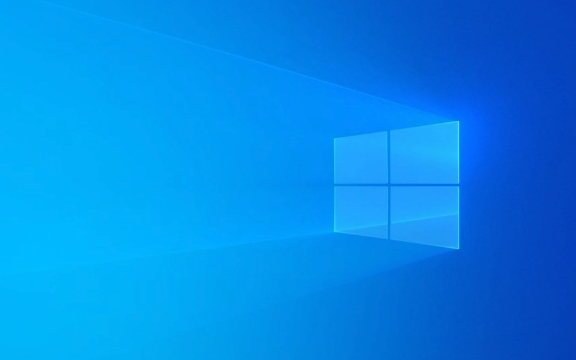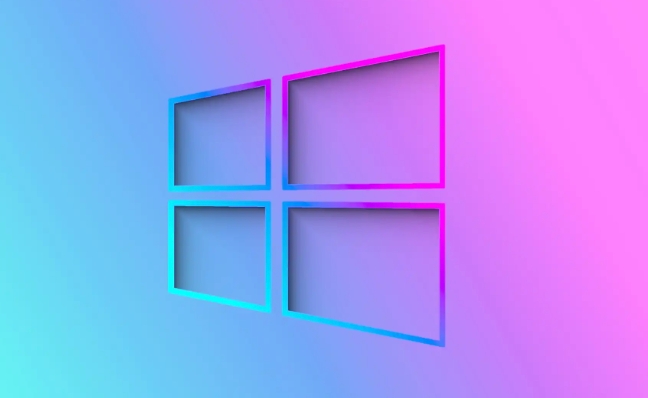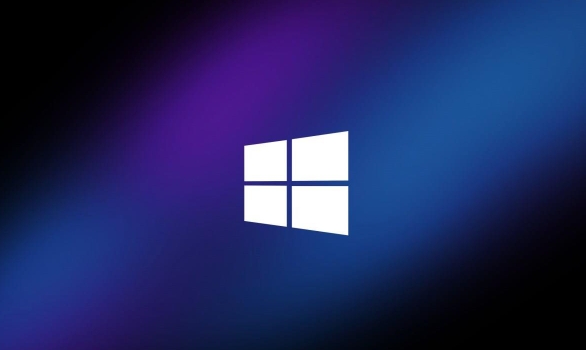First, check if other devices have the same issue to determine if it's isolated to your PC; if only your PC is affected, proceed to troubleshooting. 2. Restart your network equipment by unplugging the router and modem for 30 seconds, then plugging them back in to refresh the connection. 3. Run Windows’ built-in network troubleshooter via the Wi-Fi icon to automatically detect and fix common issues like IP or gateway problems. 4. Renew IP and flush DNS by running commands in Command Prompt as administrator: ipconfig /release, ipconfig /renew, ipconfig /flushdns, netsh winsock reset, and netsh int ip reset, then restart your PC. 5. Ensure your PC is set to obtain IP and DNS automatically through DHCP in the network settings to avoid configuration conflicts. 6. Update or reinstall your Wi-Fi driver via Device Manager, or download the latest driver from the manufacturer’s website if needed. 7. Temporarily disable third-party antivirus or firewall software to check if they are blocking internet access. 8. Check your router’s admin page for WAN/Internet status to confirm it has a public IP; if not, contact your ISP for outages or account issues. Finally, forget and re-add the Wi-Fi network, test with Ethernet, and ensure correct date and time settings to resolve secure connection issues, with most problems fixed within 10 minutes using these steps.

If your Windows PC shows "Wi-Fi connected but no internet," it means your device is successfully connecting to the router, but there’s no actual access to the internet. This is a common issue with several possible causes — from local network glitches to ISP problems. Here’s how to diagnose and fix it quickly.

? 1. Check if the Problem is Isolated to Your PC
First, rule out broader network issues:
- Try connecting another device (phone, tablet, etc.) to the same Wi-Fi.
- If other devices also have no internet, the issue is likely with your router or ISP.
- If only your PC is affected, continue troubleshooting below.
?? 2. Restart Your Network Equipment
A simple reboot often fixes temporary glitches:

- Turn off your PC.
- Unplug your router and modem for 30 seconds.
- Plug them back in and wait for all lights to stabilize.
- Turn your PC back on and test the connection.
This clears cached network states and renews your IP and DNS from the ISP.
? 3. Run the Built-in Network Troubleshooter
Windows has a helpful diagnostic tool:

- Right-click the Wi-Fi icon in the system tray.
- Select "Troubleshoot problems".
- Let it run and apply suggested fixes (e.g., resetting adapters, fixing IP issues).
It may automatically detect and fix common issues like DHCP errors or gateway problems.
? 4. Renew IP and Flush DNS (Command Prompt)
Outdated or incorrect IP/DNS settings can cause this issue. Fix them via Command Prompt:
- Press
Win R, typecmd, then press Ctrl Shift Enter to run as admin. - Run these commands one by one (press Enter after each):
ipconfig /release ipconfig /renew ipconfig /flushdns netsh winsock reset netsh int ip reset
- Restart your PC after running these.
This refreshes your IP address, clears DNS cache, and resets network components — often resolving connectivity conflicts.
? 5. Check for IP Address Conflicts or Manual Settings
Ensure your PC is set to get IP and DNS automatically:
- Go to Settings > Network & Internet > Wi-Fi.
- Click your network > IP assignment > Edit.
- Set to Automatic (DHCP).
If you're using a static IP, double-check that it's correctly configured and not conflicting with other devices.
? 6. Update or Reinstall Wi-Fi Driver
Faulty or outdated drivers can cause connectivity without internet:
- Press
Win X> Device Manager. - Expand Network adapters.
- Right-click your Wi-Fi adapter > Update driver > Search automatically.
- If that doesn’t help, uninstall the driver, then restart your PC — Windows will reinstall it.
Tip: Visit your laptop or motherboard manufacturer’s website to download the latest Wi-Fi driver if Windows doesn’t have it.
? 7. Disable Security Software Temporarily
Sometimes third-party firewalls or antivirus tools block internet access:
- Temporarily disable your antivirus or firewall (e.g., McAfee, Norton, Bitdefender).
- Check if internet works afterward.
- If yes, adjust the software’s settings or consider switching to Windows Defender.
? 8. Check for Router or ISP Issues
Even if you’re connected, the router might not have internet:
- Log in to your router’s admin page (usually
192.168.1.1or192.168.0.1). - Check the WAN/Internet status – is it getting a public IP?
- If not, contact your ISP — there might be an outage or account issue.
? Final Tips
Forget and re-add the network:
Settings > Wi-Fi > Manage known networks > Select your network > Forget, then reconnect.Test with a wired connection:
Plug in via Ethernet. If that works, the issue is likely Wi-Fi-specific.Check date and time:
Incorrect system time can break secure connections (HTTPS). Ensure Set time automatically is on.
Basically, “connected but no internet” is usually fixable with a few quick resets or network resets. Start with the easy steps — restart, troubleshoot, flush DNS — and work up to drivers and router checks. Most cases are resolved within 10 minutes.
The above is the detailed content of Wi-Fi connected but no internet on Windows. For more information, please follow other related articles on the PHP Chinese website!

Hot AI Tools

Undress AI Tool
Undress images for free

Undresser.AI Undress
AI-powered app for creating realistic nude photos

AI Clothes Remover
Online AI tool for removing clothes from photos.

Clothoff.io
AI clothes remover

Video Face Swap
Swap faces in any video effortlessly with our completely free AI face swap tool!

Hot Article

Hot Tools

Notepad++7.3.1
Easy-to-use and free code editor

SublimeText3 Chinese version
Chinese version, very easy to use

Zend Studio 13.0.1
Powerful PHP integrated development environment

Dreamweaver CS6
Visual web development tools

SublimeText3 Mac version
God-level code editing software (SublimeText3)

Hot Topics
 Windows 11 slow boot time fix
Jul 04, 2025 am 02:04 AM
Windows 11 slow boot time fix
Jul 04, 2025 am 02:04 AM
The problem of slow booting can be solved by the following methods: 1. Check and disable unnecessary booting programs; 2. Turn off the quick boot function; 3. Update the driver and check disk health; 4. Adjust the number of processor cores (only for advanced users). For Windows 11 systems, first, the default self-start software such as QQ and WeChat are disabled through the task manager to improve the startup speed; if you use dual systems or old hardware, you can enter the power option to turn off the quick boot function; second, use the device manager to update the driver and run the chkdsk command to fix disk errors, and it is recommended to replace the mechanical hard disk with SSD; for multi-core CPU users, the kernel parameters can be adjusted through bcdedit and msconfig to optimize the startup efficiency. Most cases can be corrected by basic investigation
 How to Change Font Color on Desktop Icons (Windows 11)
Jul 07, 2025 pm 12:07 PM
How to Change Font Color on Desktop Icons (Windows 11)
Jul 07, 2025 pm 12:07 PM
If you're having trouble reading your desktop icons' text or simply want to personalize your desktop look, you may be looking for a way to change the font color on desktop icons in Windows 11. Unfortunately, Windows 11 doesn't offer an easy built-in
 Fixed Windows 11 Google Chrome not opening
Jul 08, 2025 pm 02:36 PM
Fixed Windows 11 Google Chrome not opening
Jul 08, 2025 pm 02:36 PM
Fixed Windows 11 Google Chrome not opening Google Chrome is the most popular browser right now, but even it sometimes requires help to open on Windows. Then follow the on-screen instructions to complete the process. After completing the above steps, launch Google Chrome again to see if it works properly now. 5. Delete Chrome User Profile If you are still having problems, it may be time to delete Chrome User Profile. This will delete all your personal information, so be sure to back up all relevant data. Typically, you delete the Chrome user profile through the browser itself. But given that you can't open it, here's another way: Turn on Windo
 How to fix second monitor not detected in Windows?
Jul 12, 2025 am 02:27 AM
How to fix second monitor not detected in Windows?
Jul 12, 2025 am 02:27 AM
When Windows cannot detect a second monitor, first check whether the physical connection is normal, including power supply, cable plug-in and interface compatibility, and try to replace the cable or adapter; secondly, update or reinstall the graphics card driver through the Device Manager, and roll back the driver version if necessary; then manually click "Detection" in the display settings to identify the monitor to confirm whether it is correctly identified by the system; finally check whether the monitor input source is switched to the corresponding interface, and confirm whether the graphics card output port connected to the cable is correct. Following the above steps to check in turn, most dual-screen recognition problems can usually be solved.
 Fixed the failure to upload files in Windows Google Chrome
Jul 08, 2025 pm 02:33 PM
Fixed the failure to upload files in Windows Google Chrome
Jul 08, 2025 pm 02:33 PM
Have problems uploading files in Google Chrome? This may be annoying, right? Whether you are attaching documents to emails, sharing images on social media, or submitting important files for work or school, a smooth file upload process is crucial. So, it can be frustrating if your file uploads continue to fail in Chrome on Windows PC. If you're not ready to give up your favorite browser, here are some tips for fixes that can't upload files on Windows Google Chrome 1. Start with Universal Repair Before we learn about any advanced troubleshooting tips, it's best to try some of the basic solutions mentioned below. Troubleshooting Internet connection issues: Internet connection
 Want to Build an Everyday Work Desktop? Get a Mini PC Instead
Jul 08, 2025 am 06:03 AM
Want to Build an Everyday Work Desktop? Get a Mini PC Instead
Jul 08, 2025 am 06:03 AM
Mini PCs have undergone
 How to get a free Windows 11 product key?
Jul 03, 2025 am 12:51 AM
How to get a free Windows 11 product key?
Jul 03, 2025 am 12:51 AM
You can use it temporarily by upgrading genuine Win10, using the education plan or not activating temporary use. Specifically, it includes: 1. Free upgrade from activated Windows 10 to Windows 11; 2. Students or specific organization members obtain authorization through the Microsoft Education Program; 3. Short-term tests can be used directly without activation, but their functions are limited; 4. Beware of free online key traps, and it is recommended to purchase authorization or confirm upgrade conditions through formal channels.







